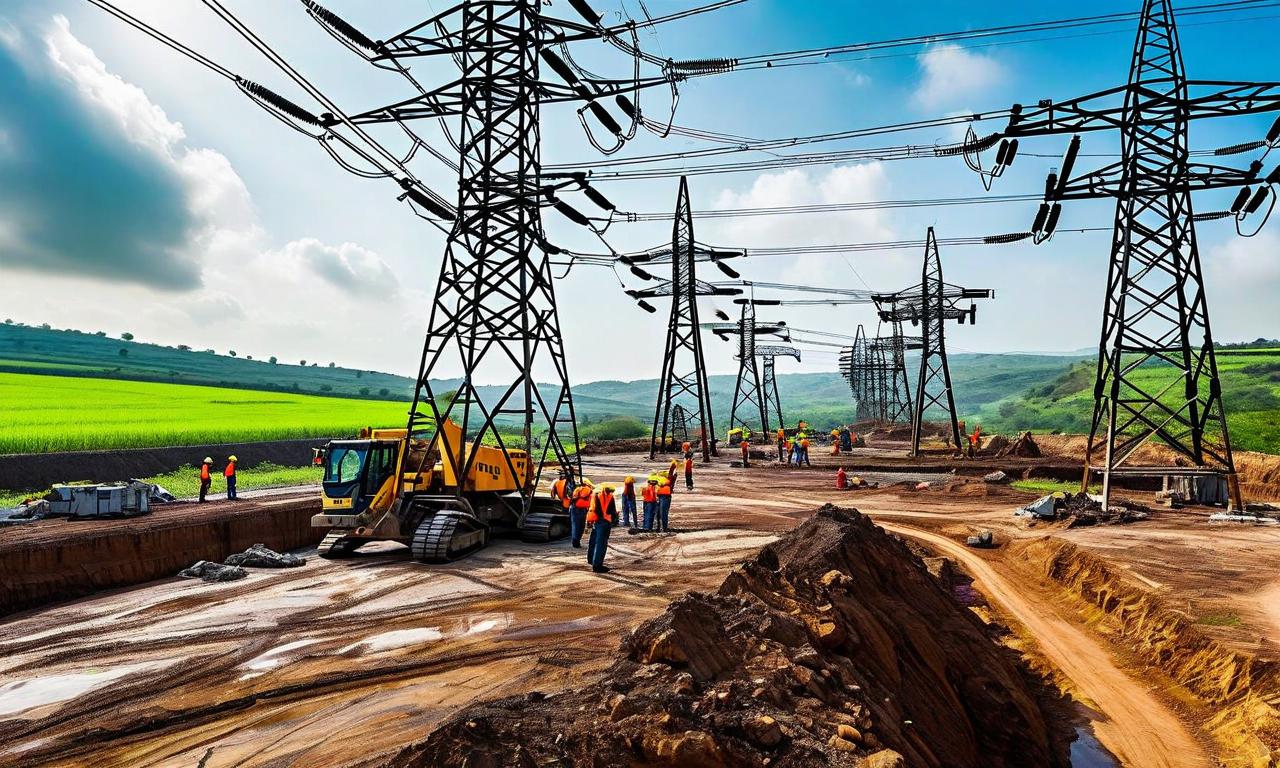US Tariffs Set to Impact 8% of India's Auto Component Production
High US tariffs are expected to directly impact nearly 8% of India's auto component production, according to an ICRA report. The US accounts for 27% of India's auto component exports, contributing to 30% of the sector's revenue. The 50% tariff on Indian goods puts exporters at a disadvantage compared to Asian competitors facing lower tariffs. This could disrupt the growth of India's auto component exports, potentially affecting the industry's revenue structure and necessitating strategies to mitigate the impact.

*this image is generated using AI for illustrative purposes only.
The Indian auto component industry faces a significant challenge as high US tariffs are expected to directly affect close to 8% of the country's overall auto component production, according to a recent report by ratings firm ICRA. This development could have far-reaching implications for India's automotive sector and its export-oriented growth strategy.
US Market Significance
The United States plays a crucial role in India's auto component exports, accounting for 27% of the total. These exports contribute substantially to the industry's revenues, making up nearly 30% of the sector's income. The importance of the US market is further underscored by the projected growth in India's auto component exports to the country, which are estimated to rise from $4.10 billion in FY2021 to $7.30 billion in FY2025.
Tariff Impact and Competitive Disadvantage
The implementation of a 50% tariff on Indian goods places Indian exporters at a significant disadvantage compared to their Asian counterparts. Competitors from countries such as China, Japan, Vietnam, and Indonesia face lower tariffs ranging from 15% to 30%, potentially giving them a competitive edge in the US market. Meanwhile, Mexico and Canada remain exempt from these tariffs under the United States-Mexico-Canada Agreement (USMCA), further intensifying the challenge for Indian exporters.
Industry Structure and Export Landscape
The Indian auto component industry's revenue structure reveals the importance of exports:
| Revenue Source | Percentage |
|---|---|
| Domestic Sales | 56.00% |
| Exports | 29.00% |
| Replacement Demand | 15.00% |
Within the export segment, the geographical distribution highlights the diversity of India's market reach:
| Export Destination | Percentage |
|---|---|
| Europe | 30.00% |
| United States | 27.00% |
| Asia | 26.00% |
| Latin America | 3.00% |
| Other Regions | 13.00% |
Potential Implications
The high US tariffs could potentially disrupt the growth trajectory of India's auto component exports. With the US market accounting for more than a quarter of India's auto component exports, any significant reduction in competitiveness could lead to a slowdown in export growth and potentially impact the industry's overall revenue structure.
Indian auto component manufacturers may need to explore strategies to mitigate the impact of these tariffs. This could include:
- Diversifying export markets
- Focusing on high-value components where tariff impact might be less severe
- Exploring opportunities to set up manufacturing facilities in countries with more favorable tariff structures
As the situation unfolds, the Indian government and industry bodies may also consider diplomatic and trade negotiations to address these tariff challenges and maintain the competitiveness of India's auto component industry in the global market.




























